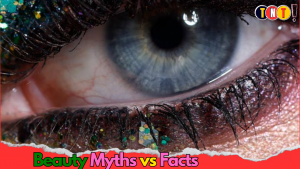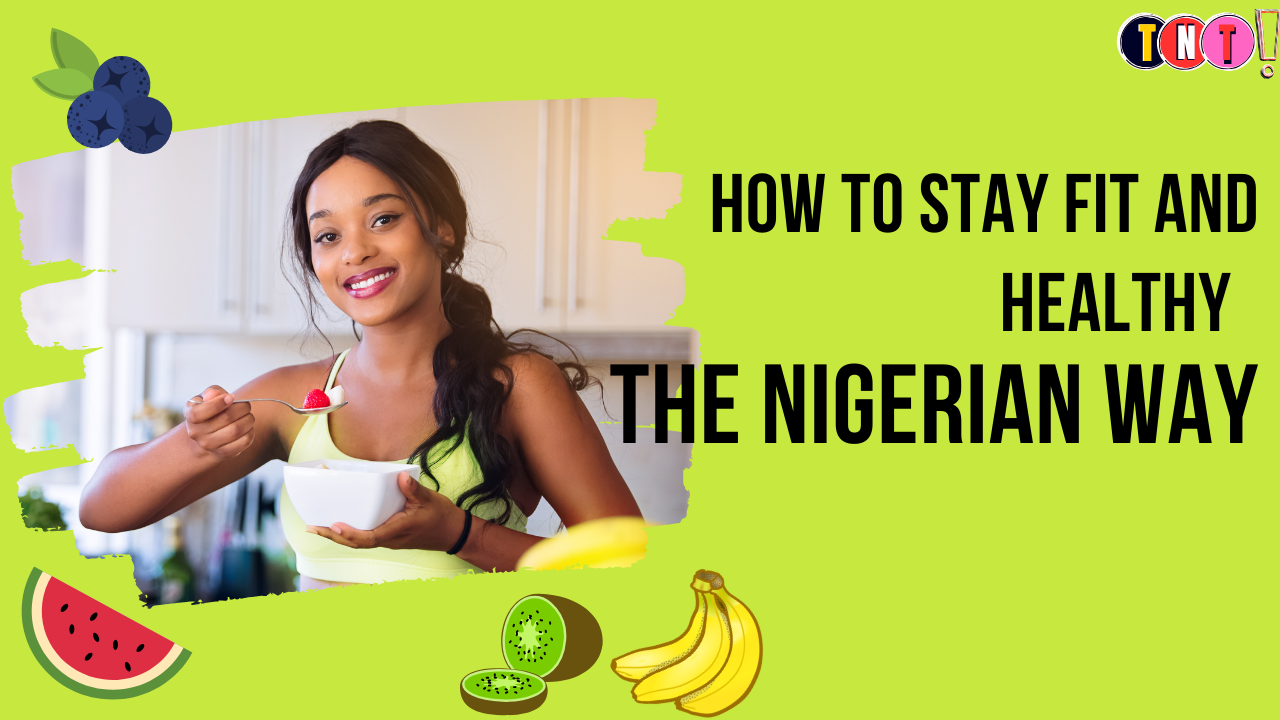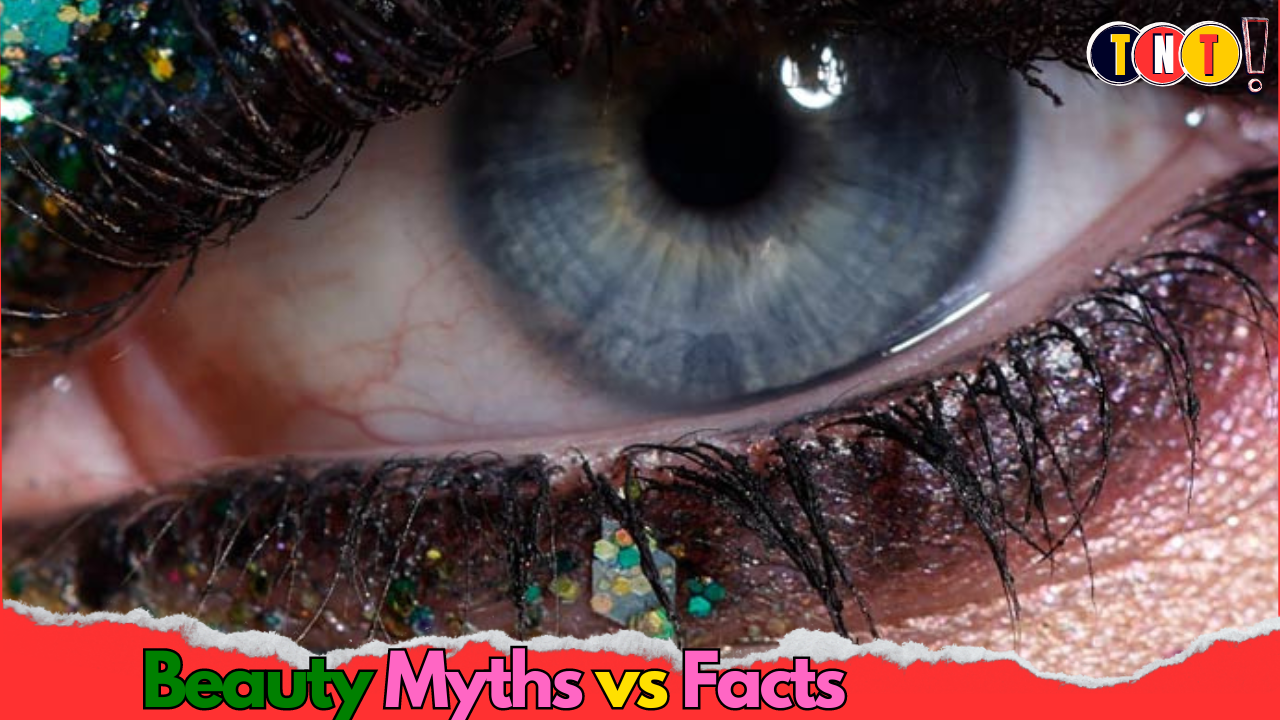What are the beauty myths vs facts that you have been told. When it comes to beauty, there’s no shortage of advice some of it amazing and some… well, not so much.

From ancient remedies to modern-day hacks, beauty myths have swirled through the ages, shaping how we care for ourselves. But how much of what you hear is actually true? Let’s set the record straight. Here are some of the most common beauty myths and the real facts behind them.
10 Beauty Myths and Facts You Need to Know
Here’s a detailed breakdown of Beauty Myths vs. Facts that you can explore in an article:
You Should Wash Your Face Twice a Day No Matter What
The Fact: It Depends on Your Skin Type We’ve all been told that washing your face twice daily is a must, but this isn’t a one-size-fits-all rule. If you have oily skin, this might work, but for those with dry or sensitive skin, over-cleansing can strip your skin of natural oils, causing irritation and dryness. The key is to listen to your skin’s needs—sometimes less is more.
Natural Products Are Always Better for Your Skin
The Fact: “Natural” Isn’t Always Synonymous with Safe We hear “natural” and immediately think “safe.” However, not all natural ingredients are good for your skin. Poison ivy is natural, and you wouldn’t want that in your skincare routine! On the flip side, many synthetic ingredients are thoroughly tested and formulated to be safer and more effective. Don’t fall for marketing—check the ingredients and see what works best for you.
Shaving Makes Hair Grow Back Thicker and Darker
The Fact: Shaving Has No Impact on Hair Growth This old wives’ tale has been debunked countless times. Shaving cuts the hair at the surface, which may make it feel thicker and coarser as it grows out. However, the hair’s color, thickness, and rate of growth remain unchanged. It’s the blunt tip of the regrowing hair that makes it appear more noticeable, not because it’s growing back differently.
The Higher the SPF, the Better the Protection
The Fact: SPF 30 Blocks 97% of UVB Rays—More Isn’t Always Necessary While it’s true that higher SPF offers more protection, the increase isn’t as significant as you might think. SPF 30 blocks about 97% of UVB rays, while SPF 50 blocks around 98%. What’s more important than the number is how often you reapply sunscreen, especially if you’re swimming or sweating. No sunscreen, no matter how high the SPF, lasts all day.
Toothpaste Can Zap Pimples Overnight
The Fact: Toothpaste Can Actually Irritate Your Skin Using toothpaste as a spot treatment for pimples is a hack many people swear by, but dermatologists strongly advise against it. The ingredients in toothpaste, such as baking soda and hydrogen peroxide, can irritate your skin, causing redness and dryness. Opt for a proper acne treatment that targets pimples without damaging your skin barrier.
You Shouldn’t Wear Sunscreen on Cloudy Days
The Fact: UV Rays Can Penetrate Through Clouds One of the biggest mistakes you can make is skipping sunscreen on a cloudy day. Up to 80% of the sun’s harmful UV rays can penetrate clouds, meaning your skin is still at risk. Whether it’s sunny, overcast, or even rainy, make sunscreen a daily part of your routine to protect your skin from premature aging and skin cancer.
Drinking More Water Will Completely Clear Up Your Skin
The Fact: Water Is Important, but It’s Not a Cure-All for Acne Hydration is crucial for overall health and glowing skin, but drinking gallons of water alone won’t magically clear up acne. While staying hydrated helps your skin function properly, breakouts are typically caused by hormones, bacteria, and excess oil production. A balanced skincare routine and seeing a dermatologist will do more for your complexion than simply drinking water.
Expensive Products Work Better Than Cheap Ones
The Fact: is that price doesn’t always equal quality It’s easy to assume that a pricier product will deliver better results, but that’s not always the case. Many drugstore brands use the same key ingredients as luxury products, and some high-end products are packed with unnecessary fillers. The best beauty products are those that work for your skin, regardless of the price tag.
You Can Shrink Your Pores
The Fact: Pores Don’t Change in Size Pore size is genetically determined, and no product can shrink them permanently. While you can minimize their appearance with treatments like exfoliation and retinoids, the size of your pores will remain the same. Instead of trying to “shrink” them, focus on keeping them clean to reduce the look of large pores.Anti-Aging Products Are Only for Older People
The Fact: Prevention Is Key Waiting until wrinkles appear to start using anti-aging products is a common mistake. In fact, using products that protect and repair your skin, like sunscreen and retinoids, in your 20s and 30s can help prevent the signs of aging from showing up in the first place. It’s all about prevention rather than trying to turn back time.
The Bottom Line
Beauty myths can lead us to develop bad habits and waste time or money on ineffective products. The best approach is to rely on proven facts and tailor your beauty routine to your unique skin type and needs. Remember, no two people are the same, so what works for someone else might not work for you. Question everything, do your research, and always consult with a skincare professional when in doubt!



